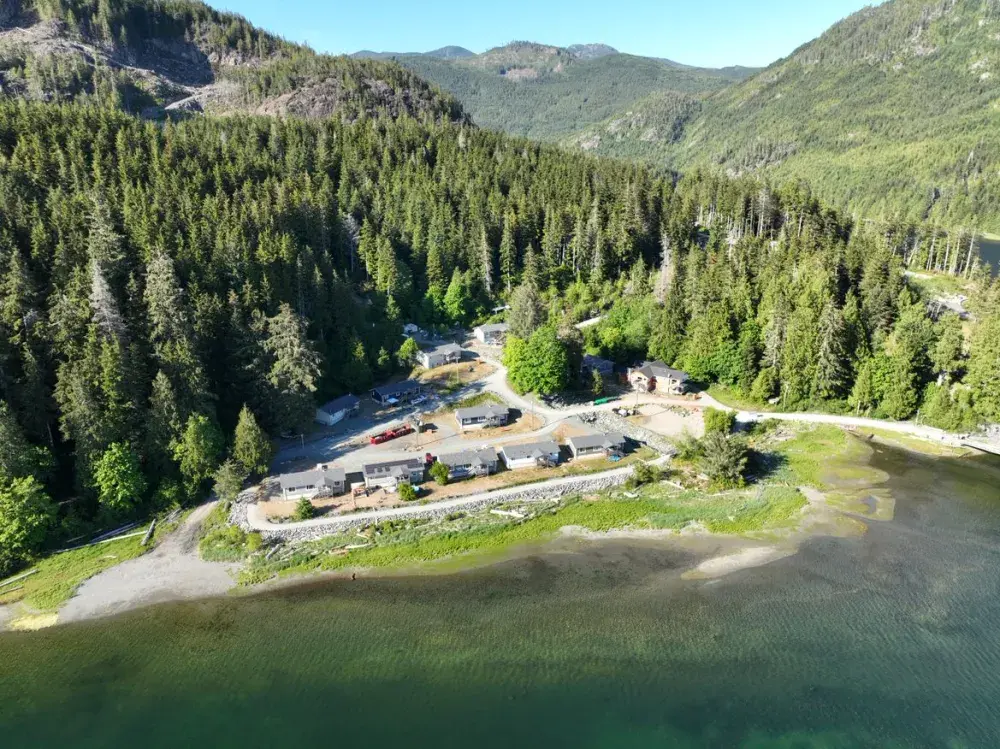A Nuu-chah-nulth First Nation has been recognized provincially for its dealings with climate action.
The Uchucklesaht Tribe was one of seven communities within the province that received climate and energy action awards at the Union of BC Municipalities convention held in September in Victoria. Uchucklesaht was honoured for its climate action plan, released earlier this year.
The Nuu-chah-nulth Nation, which has its headquarters in Port Alberni, has about 350 members.
Communities are asked to self-nominate for the various awards, which do not bring financial compensation. About 30 applications were sent in.
“It’s a pat on the back,” said Nigel Moore, Uchucklesaht’s special projects manager. “It's also great for our leadership to see the Nation getting recognized in this way, sort of alongside large municipalities in the province.”
Uchucklesaht’s climate action plan was released this past May at a community event. Moore said the plan was 14 months in the making.
“It’s the first time we’ve done a comprehensive climate action plan,” he said. “We had previously done a community energy and emissions plan, which looked at how we can reduce our climate change causing emissions.”
But Moore said this year’s plan was different, as it brings 50 recommendations.
“It not only addresses how we reduce emissions, but also how we adapt to climate change,” he said. “So, it's got recommendations both for mitigation of climate change as well what to do for adaptation to climate change.”
Judges who determined the various awards felt Uchucklesaht’s plan was “an outstanding example of a community-led project that works especially well for the context of an Indigenous community and can be replicated by others.”
Judges were also impressed with the level of community engagement, which included a working group of 20 members that met monthly. Group members made five presentations at community events and conducted a survey of 20 per cent of the First Nation’s members.
Moore felt the plan created plenty of interest, as it reflects how changing temperatures and weather patterns are already impacting “cultural keystone species”.
Moore also said the plan did not simply include details on how to save fuel during operations and how to make buildings more efficient. He believes such information can be dull.
“It was really about confronting things like food security and how that's going to be impacted by a climate change,” he said. “And the health of the territory and different ecosystems and how those things are going to be affected by climate change.”
Uchucklesaht’s community energy and emissions plan had been released in 2022. Moore said it was a year later the First Nation decided to do its follow-up plan.
“We’re part of a program called the Indigenous Off-Diesel Initiative,” he said. “And we’re part of that because our village Ethlateese is completely diesel dependent. So, we're trying to find a way to get off of diesel. And they have this three-phase program that they support diesel-dependent communities.”
Moore explained the initial phase provides training to staff to create energy champions within the Nation. Phase two is to do an energy plan. And then the third phase is to implement projects that reduce diesel.
Moore is hoping Uchucklesaht is viewed as a trendsetter with its climate action plan.
“I think that certainly from the perspective of somebody who works on climate change and has been doing that as sort of a career, I definitely want us to be a role model and for us to be sharing what we're doing,” he said. “And if others want to continue to do that work in their communities, then I think that's a great thing.”
Those who served as judges for the award have a similar line of thinking as they provided the following comment: “The community-led plan provides an excellent path forward and shows other communities how this work can be done with strong community involvement.”
Moore said many of the recommendations in the plan have started taking place.
That includes the First Nation’s efforts to reduce emissions and get Ethlateese off of diesel use.
“Implementing clean energy projects is something that we've been working on an ongoing basis and continue to work on,” he said. “But then there's a whole bunch of more of climate change, adaptation focussed projects that were recommended.”
Moore also said Uchucklesaht has received some funding to start carrying out some plan recommendations.
“We've got several ongoing studies right now that are doing a bit of a deeper dive into some of the issues and concerns with climate change impacts that were identified in this climate action plan,” he said.
Uchucklesaht has long-term goals to improve sustainability, aspirations that could be helped by plans to implement several climate monitoring stations in the territory.
These monitoring stations will keep tabs on marine environment, including water temperatures and water levels.
“The idea of all of these different monitoring stations is that we're going to be collecting local climate data and being able to understand what's really happening in our territory at that local level as opposed to just instead of assuming that larger scale, models and information are going to apply to us,” Moore said.
He added Uchucklesaht officials will be sharing details on their climate action plan at the Indigenous Coastal Climate Coalition event set for Nov. 4-6 in Victoria. Several other coastal First Nations are expected to attend the conference.


